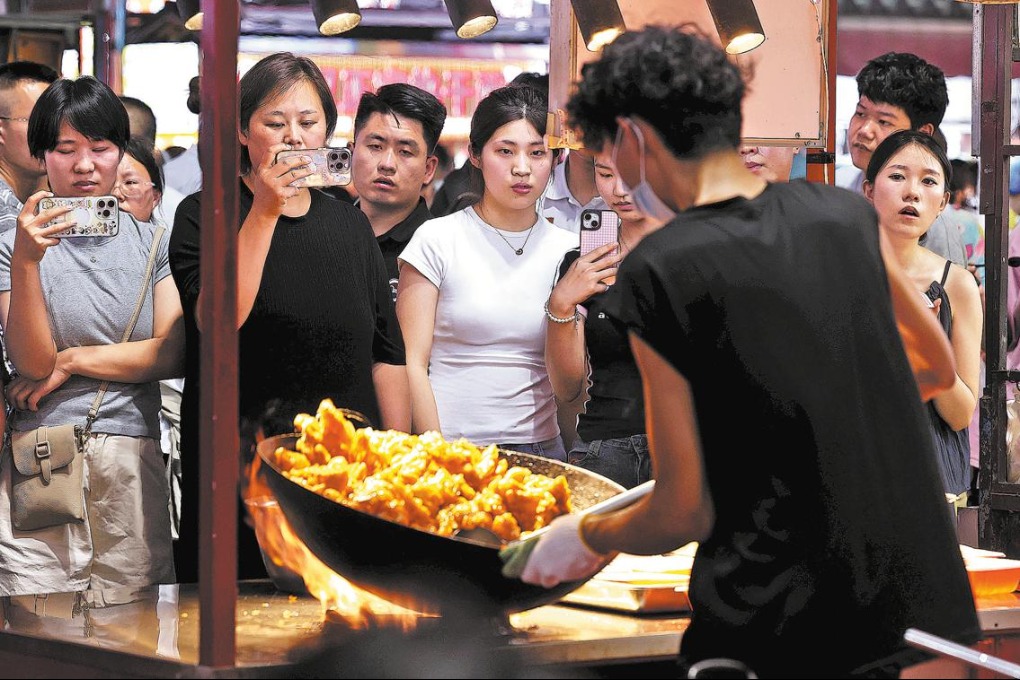Industrial output gains more momentum

China's economic recovery from COVID-19's effects gained further momentum as major indicators improved last month, officials and experts said on Friday.
Economic growth for the world's second-largest economy may turn positive soon, they said, while urging stronger macro policy measures to stabilize employment and expand domestic demand.
The country's industrial output, a major economic indicator, expanded by 3.9 percent year-on-year in April as the resumption of production and market demand advanced, the National Bureau of Statistics said on Friday.
The growth reversed an 8.4-percent contraction in the January-March period, according to the NBS.
Retail sales, the barometer of consumption, dropped by 7.5 percent year-on-year last month, following a 15.8 percent plunge in the previous month, the bureau reported.
Liu Aihua, an NBS spokeswoman, said the economy is gradually returning to normalcy as coordinated efforts in epidemic control and economic development bore more fruit in April, with economic fundamentals, such as a complete industrial system and a huge domestic market, still sound despite the pandemic's shock.
But there remain many "instabilities and uncertainties" for future economic recovery, she said, noting that the virus continues to spread overseas, causing more economic damage.
The authorities will prioritize safeguarding employment in the face of the challenges, make more effort to help businesses out of difficulties and try to use the "crucial role" of investment in unlocking domestic demand, Liu said.
Fixed-asset investment in the first four months of the year contracted by 10.3 percent.
The surveyed urban unemployment rate edged up to 6.0 percent in April from 5.9 percent in March, the NBS said.
Liu's remarks were consistent with the top leadership's recent call for efforts to ensure the "six priorities"-safeguarding employment, people's livelihoods, the development of market entities, food and energy security, the stable operation of industrial and supply chains and the smooth functioning of society.
The "six priorities" highlight the leadership's baseline mindset when grappling with the pandemic's economic fallout, analysts said.
Based on this idea, the nation is expected to roll out a stimulus package that focuses on support for badly hit businesses and low-income people at the upcoming annual gathering of the National People's Congress, the top legislature, they said.
Xi Jinping, general secretary of the Communist Party of China Central Committee, further underscored the importance of boosting the stability and competitiveness of China's industrial and supply chains at a leadership meeting on Thursday.
The meeting of the Standing Committee of the Political Bureau of the CPC Central Committee, presided over by Xi, also urged efforts to strengthen international cooperation to ensure the stability of global industrial and supply chains, according to a meeting statement.
Liu Xuezhi, a senior researcher at Bank of Communications' Financial Research Center, said the meeting indicated that China will take more proactive steps to keep COVID-19-related disruptions of global supply chains from impeding the restarting and functioning of the domestic industrial sector.
With industrial production expected to continue recovering, the country may register positive year-on-year GDP growth during the second quarter, though slight, compared with a 6.8 percent plunge in the first quarter, he said.
"As production is gradually resumed, the need for shoring up demand has become urgent, no matter if it's for stabilizing GDP growth or preventing unemployment," said Zhang Deli, chief macroeconomic analyst at Yuekai Securities, based in Guangdong province.
Policy-sensitive infrastructure and real estate investments are expected to lead the economic recovery in the coming months, while the consumption demand may lag behind due to household debt burdens and unemployment risks, Zhang said.
To shore up consumption, fiscal authorities could consider providing more bailouts for low-income consumers, such as paying for all expenses for commuting and part of utility and rent costs, said Jin Li, a national political adviser and finance professor at Peking University.
Today's Top News
- Germany vows to tackle people-trafficking to the UK
- Greek farmers fear fresh US tariff blow
- Global banks, institutions optimistic on China growth
- Chinese people's heroic victory praised
- Sichuan's ethnic festival attracts thousands of tourists
- Goal of high-tech self-reliance unchanged: China Daily editorial






























